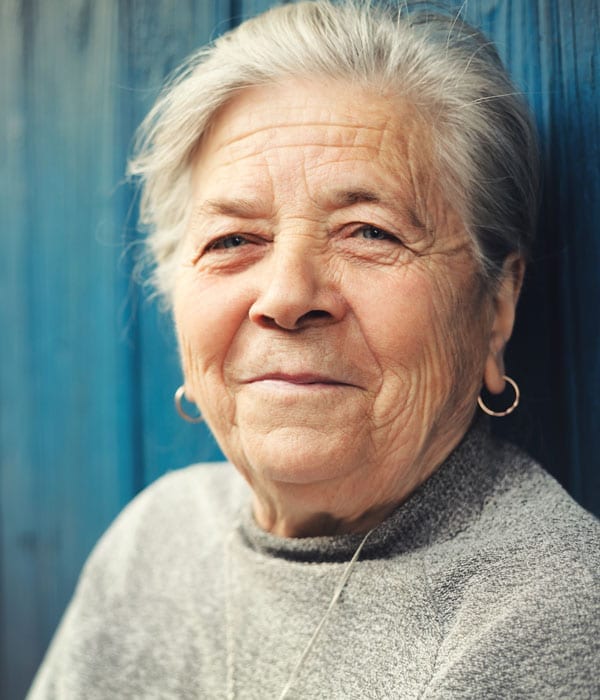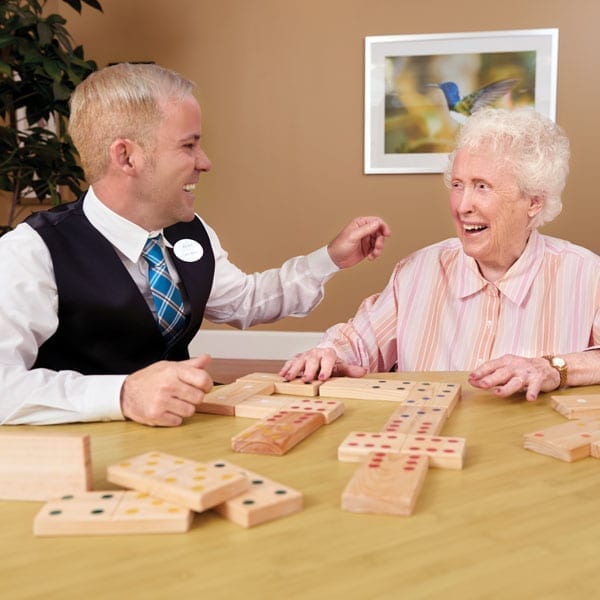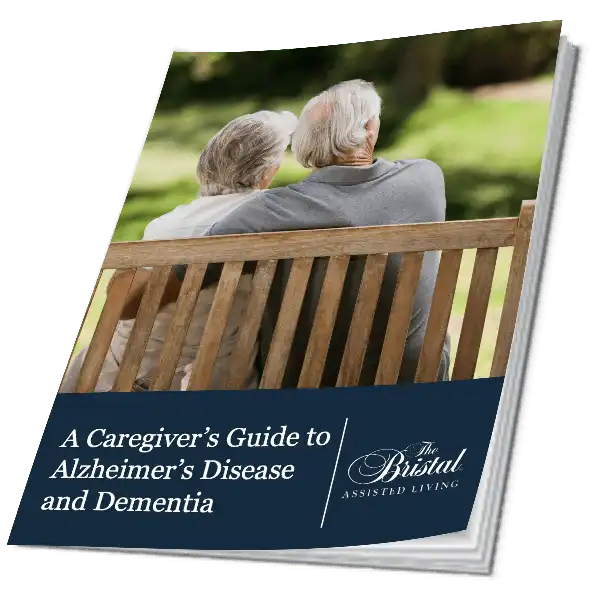Alzheimer’s and dementia are two of the most-discussed conditions that affect many people as they grow older. But what do they mean? How can they be managed or treated? Get answers, guidance, and support here.
What is Dementia?
Dementia is the name for any one of several memory-related cognitive disorders. Alzheimer’s is one of the most common forms of dementia and is a progressive disease that destroys memory, thought capacity, and the ability to function independently. Other types include, but aren’t limited to:
Vascular dementia
This disorder is caused by impaired blood flow to the brain. It can occur after a stroke, but this is not always the cause.
Lewy body dementia
A disorder caused by abnormal deposits in the brain affecting mood, thinking, movement, and behavior.
Frontotemporal disorders
Forms of dementia caused by a group of brain diseases that affect the front part of the brain and impact a person’s personality, behavior, and language.
It’s important to understand that types of dementia and related disorders are not a normal part of aging. While some memory loss as people get older is natural, that’s different from dementia and the intellectual, social, and cognitive impairments that come with it.
Early Signs of Dementia
Again, it’s important to remember that some forgetfulness is often a natural part of aging, so these symptoms below are not meant to diagnose dementia – only a doctor can do that. However, if you notice a pattern in your loved one with any of the following symptoms, it’s best to consult a professional:
- Memory loss. Your parent went to an appointment and later didn’t remember going.
- Abstract thought impairment. Your father has always put gas in his car each Monday evening but begins to be confused about how to pump it.
- Getting lost in a familiar setting. Your mother goes for a walk around the block as usual and gets confused about how to get back.
- Difficulty recalling information. You called your aunt and told her you’d be over to her house that evening. Later, she doesn’t remember that you spoke.
If your loved one is exhibiting worrying behavior similar to the examples above, it’s important to schedule a doctor’s appointment. There may be another explanation, from the wrong medication to a vitamin deficiency, which, believe it or not, may lead to dementia-like symptoms.
Treatment and Care Options
While there is no cure for dementia at this time, there are treatments that can help improve the quality of life for someone who has been diagnosed.
Drug treatments cannot stop the progression of the disease, but they can help improve cognitive functioning and alleviate some symptoms. A doctor can help you decide on the best treatment options for your loved one.
Because of the loss of physical and mental capabilities, it can be difficult to care for a person with dementia through the progression of the disease.
More about Alzheimer’s
Alzheimer’s is the most common form of dementia, affecting more than five million Americans. Find answers to some common questions about the disease here.
Is Alzheimer’s Hereditary?
If your parent has Alzheimer’s , it doesn’t mean that you’ll get it, too. A variety of factors have an impact on your risk for developing the disease. Even those who carry particular associated genes aren’t guaranteed to have it.
Stages of Alzheimer’s
Alzheimer’s is typically classified into three stages: Early (mild), middle (moderate), and late (severe). As the disease progresses, people have more trouble with memory, daily tasks, and the ability to think logically.
Early: The person may still be able to live on their own and meet their own daily needs. They may notice memory problems like forgetfulness or confusion.
Middle: This is often the longest stage, potentially lasting for many years after a diagnosis. People in this stage often have memory problems and difficulty functioning in ways that are visible to others.
Late: This is the most advanced stage of the disease. A person with late-stage Alzheimer’s will need constant care and supervision. They may lose control of many of their bodily functions, be confused about their surroundings, or forget recent memories.

Tips for Caregivers
If you plan to care for a parent or loved one with dementia yourself, it’s best to educate yourself about the progression of their specific type and understand the changes they’ll experience.
Also, consider your home: Will it be easy for someone with dementia to navigate (stairs or uneven surfaces)? Do you have small children or pets that could trip up someone who has trouble walking? Is your bathroom set up so you’ll be able to help your loved one bathe and use the toilet? These are all things to consider.
Guilt among caregivers for feeling like they’re not doing enough or are frustrated with someone in their care is common, but it’s normal. Caring for someone with dementia can be ultimately rewarding, but it may also be physically and emotionally demanding as you cope with your loved one’s disease.
If at-home caregiving isn’t right for you and your loved one, or if you realize you need more help as their dementia progresses, consider a memory care community as an option. Your loved one will live in safe, secure surroundings with experienced professionals, engaged in meaningful activities.
At The Bristal Assisted Living, each community has an area called Reflections, which specializes in caring for aging adults living with Alzheimer’s and other forms of dementia. Learn more
Could I have helped prevent dementia?
It’s tempting to feel guilty about a loved one’s diagnosis and wonder if it could have been prevented. But the answer is, there’s no one thing that you could have done to safeguard them. While lifestyle choices like eating a healthy diet, getting plenty of exercise, not smoking, and reducing alcohol consumption may help, scientists are still searching for clues and answers about the causes.
How can I get support?
Many people find support groups through senior centers, libraries, or places of worship. Assisted living communities, like The Bristal, also hold monthly support groups for families of loved ones with Alzheimer’s or dementia. Another source of support is a local Memory Café – a social gathering of caregivers and the loved one in their care. Consider looking for one in your area to connect with other families coping with the disease.
Choosing the Right Memory Care Community
As your parents’ dementia progresses, you may find that you need more help taking care of them, or even that you need full-time professional help. If that’s the case, you may look for a community offering specialized memory care. This is a form of long-term care specifically for people with dementia or forms of alzheimer’s.
To choose a memory care community, we suggest taking all the same steps when choosing an assisted living community. When specifically researching communities for someone with dementia, there may be additional questions you’d like to ask, like:
- What types of programs are offered to residents each day?
- What type of training does the staff receive?
- What measures are taken to help avoid wandering?
- Are there areas or techniques to help calm someone if they become agitated?
Make sure you know exactly what services are offered. Ask questions to determine the quality of care, the types of programs offered, and the look and feel of the community. Go for a visit – or two – so you can make a more informed decision.
Some caregivers feel guilty or inadequate for wanting to move their parent or loved one into a memory care community. This is completely normal, but remember – wanting the best care for them isn’t a reason to feel guilt. When you make an informed decision, you’re doing it in their best interest.

Memory Care at The Bristal
All of The Bristal Assisted Living’s communities offer a specialized memory care area called Reflections. In a safe and secure setting, seniors participate in fun, individualized and meaningful programming that helps bring a sense of purpose and structure. And family members are always part of the process. The Bristal at Lake Success is the first community of The Bristal to be fully dedicated to caring for those with Alzheimer’s or other forms of dementia
At The Bristal at Lake Success, residents have the ability to voluntarily participate in the Feinstein Institute’s research on Alzheimer’s or other forms of dementia. These residents can reap the benefits of research that’s already being conducted as well as help make strides against the disease for the future.
Want to learn more about memory care at The Bristal? Visit our blog, subscribe to our monthly bulletin, or schedule a tour today.

